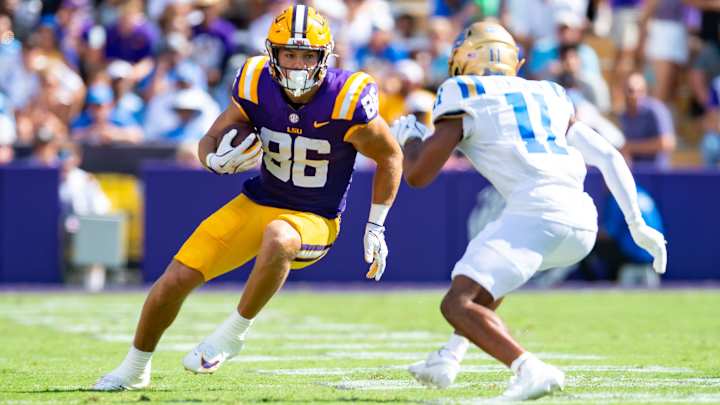
LSU Football vs. Alabama Crimson Tide: The Rivalry That Redefines College Football’s High Stakes
The highly anticipated showdown between the LSU Tigers and the Alabama Crimson Tide is here, with fans from both sides eagerly awaiting a clash that often shapes the entire landscape of college football. However, this year’s matchup brings more than the usual rivalry tension — ticket prices, kickoff time, and the media handling of this showdown have stirred controversy, bringing into question the accessibility, scheduling, and even the broadcasting politics that shape such iconic games.
Ticket Prices Skyrocket: The Business of Rivalry
One of the hottest issues around the LSU vs. Alabama game is ticket prices. LSU and Alabama fans are no strangers to high prices, especially for a matchup that has decided the SEC West more times than fans can count. But this year, the ticketing scene has reached a whole new level. With demand driven by rabid fans, limited stadium seating, and the possibility of postseason implications, secondary market tickets are inflating to hundreds — even thousands — of dollars. Resale platforms are flooded with tickets priced well beyond what many college football fans can afford.
This surge raises a serious question: has the rivalry been transformed into a money grab? Many critics argue that the commercialization of LSU vs. Alabama has taken away from the essence of college football. Historically rooted in regional pride and tradition, the game is now, for some, increasingly out of reach. With only die-hard fans willing to cough up the cash, average attendees are finding themselves priced out, leaving seats filled with corporate sponsors and wealthier fans who may not share the same level of passion.
Kickoff Time Controversy: Primetime, But at What Cost?
Kickoff time for the game is set for primetime, 7:00 PM CT, to cater to a national television audience. While this ensures maximum viewership, the late start is problematic for some fans and players. For starters, students and locals who traditionally make up a significant portion of the audience have voiced complaints about the late timing. Many find it challenging to stay late into the evening, especially with work or academic commitments the following morning. Moreover, this kickoff time disproportionately affects LSU fans, who will face the logistical nightmare of either an overnight return trip or costly accommodation near Alabama’s Bryant-Denny Stadium.
Even players and coaches have weighed in on the scheduling, noting that a late game can take a physical toll, especially in a high-stakes matchup. Studies have shown that night games can disrupt athletes’ circadian rhythms, affecting performance and recovery. The SEC’s drive for ratings seems to have overshadowed considerations for fans and players. And this decision — made largely for the sake of network money — has left fans questioning whether the scheduling aligns with the values of college football.
Broadcasting Rights: The Media Monopoly Debate
For years, networks like ESPN have essentially held monopolies over major SEC games, with their influence growing further after the SEC inked a deal with ABC and ESPN to exclusively broadcast SEC games starting in 2024. This media monopoly has meant fewer options for fans to watch the game without committing to expensive streaming or cable packages. The LSU-Alabama showdown will be televised on CBS this year, but with future broadcasts at stake, fans worry that increased media consolidation will only restrict access.
Critics argue that ESPN’s monopoly over SEC broadcasting rights risks homogenizing the viewing experience. Regional commentators who understand the game’s unique culture are often sidelined in favor of network-approved analysts, many of whom lack the background or passion for SEC football. Local networks, previously a staple for many fans, can no longer cover the games directly, leading to a widespread sentiment that fan experience has been sacrificed for corporate interests.
A Rivalry Under Siege
The LSU-Alabama rivalry has traditionally been more than just a game; it’s a clash of legacies, ideologies, and even cultural pride. But as ticket prices rise, media monopolies tighten their grip, and scheduling favors national audiences over local fans, many fear that the rivalry is losing its roots. LSU and Alabama fans are left questioning whether the soul of college football is slipping away, traded for profits, primetime ratings, and media exclusivity.
Will this game still feel as thrilling when passionate students and local fans are replaced by corporate ticket holders and fair-weather attendees? Will the players’ performances suffer as they’re forced to adjust to primetime demands dictated by profit-driven networks?
This season, the LSU vs. Alabama game is more than a fight for SEC glory. It’s a symbol of what college football has become and a reminder of what it risks leaving behind. Fans, players, and coaches alike are feeling the squeeze, and the future of the LSU-Alabama rivalry may depend on whether college football can find a way to balance tradition and modern demands.




